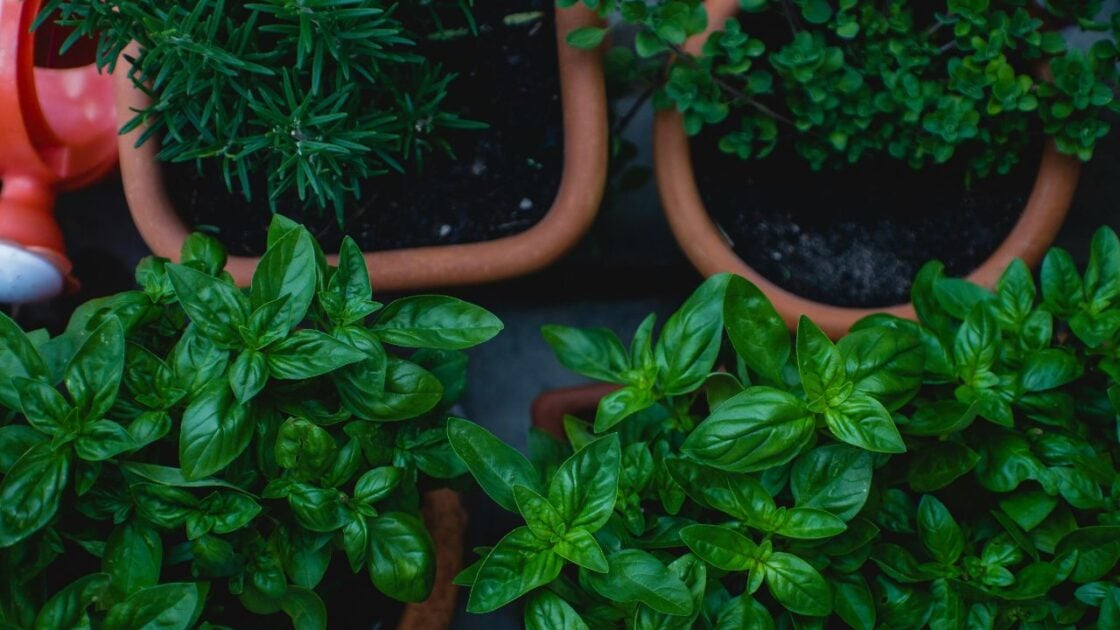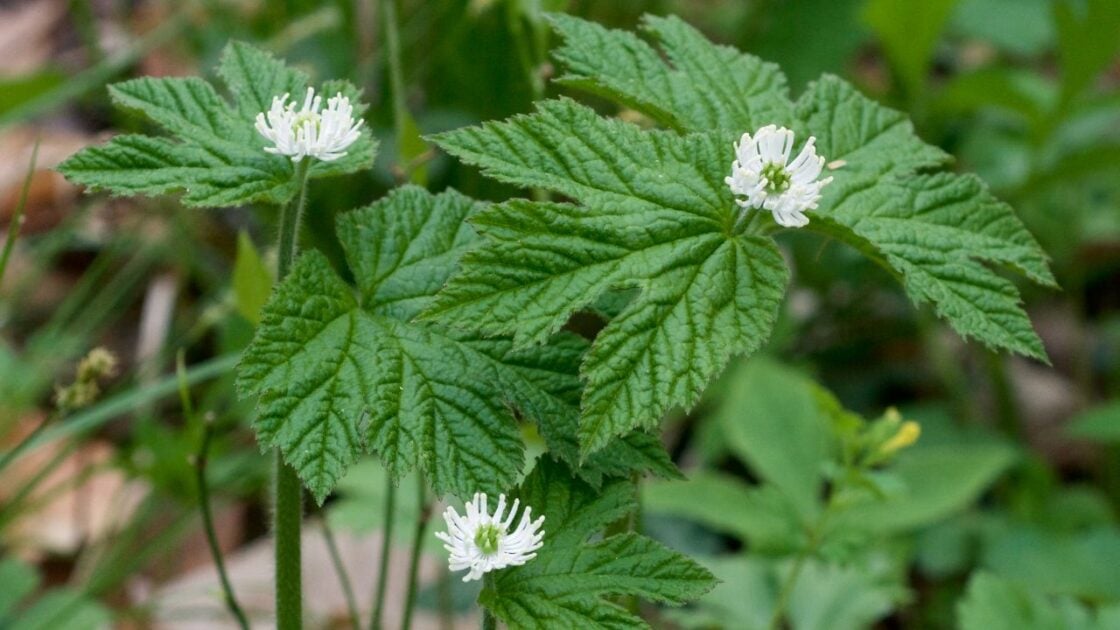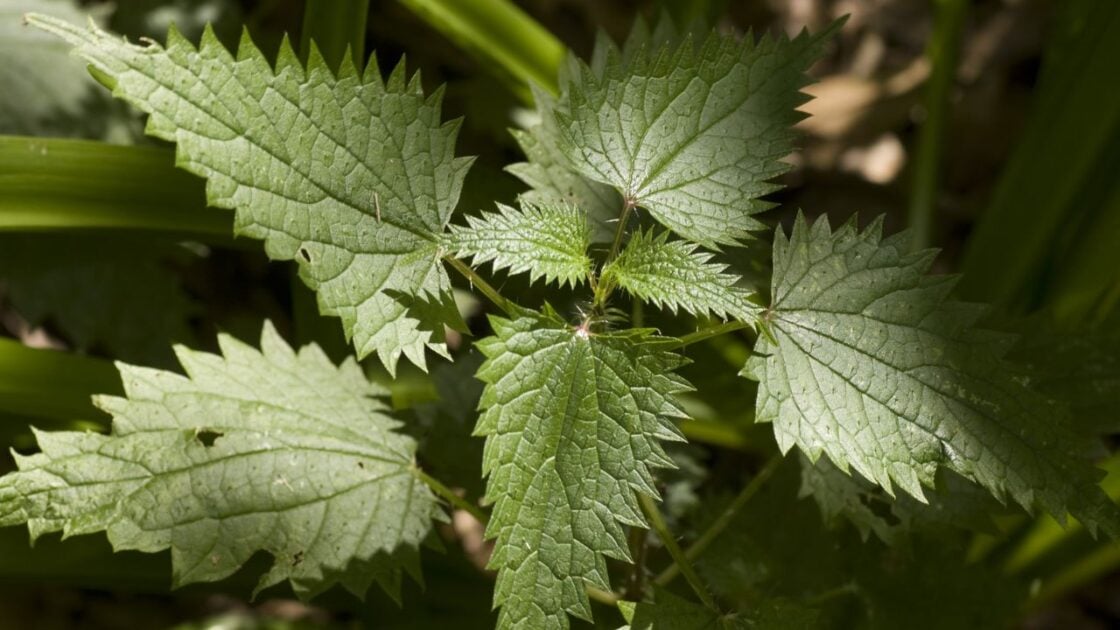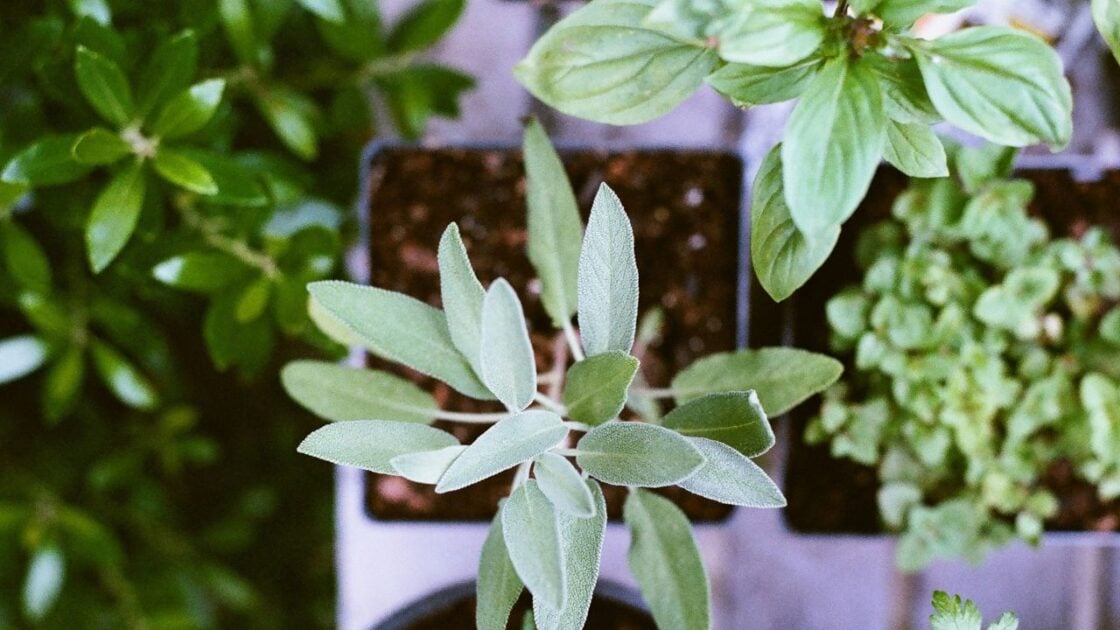6 Holistic Medicine Cabinet Basics to Keep at Home

Believe it or not, Nyquil has not always been at the bedside of humans. We’ve relied on the incredible healing power of plants, bark, roots, and other botanicals to treat a number of ailments for thousands of years, like these holistic medicine cabinet basics everyone should have.
Herbs come in many forms — some may even be growing in your yard. When used properly, there are few side effects or allergies, but always check with your physician or naturopath first, especially if you’re taking any prescription medications. For medicinal strength herbs, try liquid tinctures by trusted brands like Herb Pharm or Gaia Herbs, or pharmacopeial grade teas made by Traditional Medicinals. Researching local sources for quality organic herbs is always a good idea as well.
Please note that if you are nursing or pregnant, some medicinal botanicals that are considered safe otherwise, are not recommended. This is not a substitute for professional medical advice. See your primary care physician when making changes to your lifestyle.
Here are six super healers that you need to have on hand in your home at all times for a variety of ailments.
Sign up for the newsletter for more natural wellness tips.
1. Goldenseal

This perennial member of the buttercup family has internal and topical uses. It’s antimicrobial, which makes it invaluable for cuts and scrapes. Internally, it can aid in digestion, remove canker sores, reduce inflammation, and treat infections1.
2. Lemon Balm

Also known as Melissa, lemon balm repels mosquitoes. This holistic medicine cabinet basic acts as a great alternative to DEET, which is found in store-bought bug repellants. It’s mild and safe for children, too.
Additionally, lemon balm is naturally calming. Not only does it help with anxiety and depression2, but it has also been tested as a natural treatment in Alzheimer’s patients. These benefits showcase the essential oil’s strong, fragrant powers as a calming agent in people of all ages. Not to mention, it’s known for being an antiviral and can treat herpes.
3. Nettles

Fresh, the leaves of the stinging nettle can be quite painful, but in tincture form, there are plenty of helpful uses. For example, it’s one of the best ways to relieve seasonal allergies3. It may relieve painful symptoms of arthritis and even offer relief in people with kidney problems. If you need another reason to keep this herb in your medicine cabinet, it’s also great at treating dandruff when used topically. Try nettles at home next time your scalp needs some love and you just might be able to avoid a prescription.
4. Peppermint

This tasty leaf is more than just a flavoring4. It has been clinically proven to improve digestion and reduce irritable bowel symptoms, and it can help relieve insomnia and certain types of anxiety. Rub some peppermint oil on your temples to help diffuse headaches.
5. Ginger

Another gourmand’s delight, ginger is oh-so-tasty and oh-so-good for you. Sublime for tummy troubles, also helps relieve motion-sickness symptoms and both PMS and menstrual discomfort5. Tea, tincture, or ginger candies can all be helpful for the tummy. Don’t forget to pack some before your next road trip or flight for the best all-natural remedy.
6. Licorice

Licorice root is nothing like a Twizzler. It’s a powerful clinically proven medicine that relieves cough and sore throat symptoms6. It is also a strong digestive tonic, anti-viral, and may help reduce stress and anxiety. This can be great in a tea or powder, which you mix into a morning smoothie or health drink.
Read More on Organic Authority

7 Soothing Natural Cold and Flu Remedies
7 Natural Remedies to Ease Menopause Symptoms
What’s The Best Full Body Detox? A Holistic Waterfall Cleanse
4 Naturopathy and Holistic Health Programs to Learn, Live, and Explore Natural Healing
Sources:
- https://pubmed.ncbi.nlm.nih.gov/32683037/
- https://pubmed.ncbi.nlm.nih.gov/34449930/
- https://www.sciencedirect.com/science/article/pii/S2405844022010052
- https://pmc.ncbi.nlm.nih.gov/articles/PMC7767097/
- https://pmc.ncbi.nlm.nih.gov/articles/PMC7019938/
- https://pmc.ncbi.nlm.nih.gov/articles/PMC8703329/

